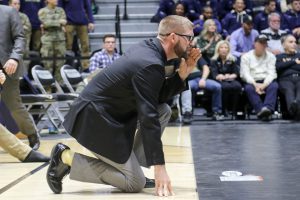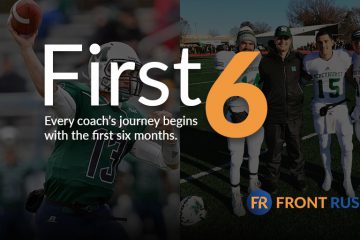Ned Shuck, Head Assistant Wrestling Coach at Army West Point
Front Rush is sharing stories from coaches across all divisions and sports. Every coach’s journey begins with the first six months.

Why did you start coaching?
I understood the positive difference that my high school wrestling coaches made in my life by helping me become a man of character and holding me accountable for success in the classroom and in my life as well. Without their mentorship, there is no telling where I would be today. I desire to have that same type of impact on all my athletes while helping them reach the pinnacle of the sport in performance as well.
In the beginning of your career, what was the most challenging part of your job?
Starting my professional career as a special education teacher with all its demands and pushing to build an elite high school program required a lot of time and commitment. I could have done a much better job of giving undivided attention to my wife and working hard to ensure I was serving her.
What is the biggest lesson you’ve learned while coaching wrestling?
There are no secrets to coaching wrestling or anything else. If you are willing to outwork everyone, you will experience tremendous levels of growth and hopefully your performance results will reflect your efforts. However, there are not guarantees, and those who take short cuts will be exposed.
What has been your biggest accomplishment as a coach?
I’ve had national champions and had NCAA trophy finishing teams, but by far the biggest accomplishment I’ve had as a coach is seeing all my athletes pursue their passions, be effective leaders, and impact many others through their careers and with their families. Seeing the exponential change that I had a small part in is incredibly rewarding and helps motivate me to be a better leader.
If you could go back to those first 6 months of coaching, what advice would you give yourself?
I would have different answers probably with my high school and college experiences here. Being an assistant and being a head coach is significantly different as well.
As a head high school coach, I would have put more efforts in selling the vision to my administration and working to build those relationships with them and parents, while also establishing clear communication boundaries. You can never communicate your vision too much. Although not always desirable, over communicating is also key with everyone involved in your program.
As a head college coach, I would put a ton of energy into hiring and developing my staff. To maximize the program’s productivity in the identified priorities, you must develop systems and refine them as you work. Work hard at creating the systems, lean on your staff for their expertise, and take massive action to accomplish your vision.




